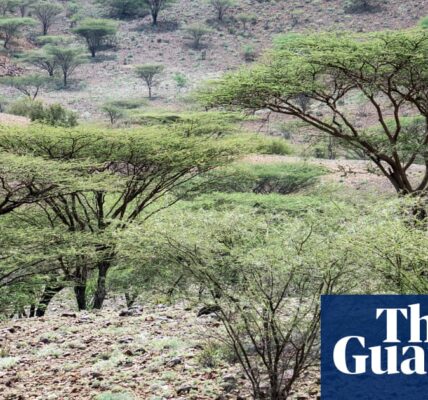At Cop28, a pledge of $700 million was made to a fund for loss and damage, but this only covers less than 0.2% of the total amount needed.

The countries with the most wealth, who are primarily responsible for the climate crisis, have currently promised a total of approximately $700m (£556m) to the loss and damage fund. This amount is equivalent to less than 0.2% of the irreversible financial and non-financial losses that developing countries experience each year due to global warming.
During the opening session of the Cop28 summit in Dubai, a significant decision was made to establish a fund for loss and damage. This was seen as a significant success for developing nations, who have been advocating for financial assistance from developed, polluting countries to address the damage already being caused.
However, current commitments have not met the necessary level, as a single non-governmental organization estimates the loss and damage in developing countries to exceed $400 billion annually, and this number is increasing. Various estimates have placed the annual cost of the damage between $100 billion and $580 billion.
The $100m pledge by the United Arab Emirates, the Cop28 host country, was matched by Germany – and then slightly topped by Italy and France, which both promised $108m. The US, which is historically the worst greenhouse gas emitter – and the largest producer of oil and gas this year – has so far pledged just $17.5m, while Japan, the third largest economy behind the US and China, has offered $10m.
Harjeet Singh, the leader of Climate Action Network International’s global political strategy, which is a group of 200 organizations focused on climate change, stated: “The initial commitment of $700 million is insignificant when compared to the massive amount of funding needed, estimated to be in the hundreds of billions each year. The delay of over 30 years in creating this fund, along with the small contributions from wealthy nations, especially the US as the largest historical contributor to pollution, shows a continuous disregard for the struggles of developing countries.”
Some of the commitments are Denmark at $50 million, Ireland and the EU both at $27 million, Norway at $25 million, Canada at less than $12 million, and Slovenia at $1.5 million.
According to climate justice experts, the funds for loss and damage should be provided as grants rather than loans and should be new and additional. However, many countries have not provided further information about the amount and timing of the pledged funds.
Campaigners highlight that the UK’s promise of £60 million ($75 million) is not new or extra, but was instead diverted from a previous commitment for climate finance that has since been lowered.
The initial agreement laid the foundation for implementing the funding plans for loss and damage. The specifics are currently being deliberated in the global stocktake (GST) talks, which will greatly impact the possibility of limiting global warming to 1.5 degrees Celsius.
The GST is a crucial aspect of the Paris agreements, a comprehensive evaluation designed to track progress and measure collective efforts. The results will inform each country’s individual five-year climate strategies, which is why developing nations are advocating for specific and robust instructions on the required contributions towards addressing loss and damage and transitioning away from fossil fuels.
Julie-Anne Richards, a member of the Loss and Damage Collaboration, which consists of researchers, lawyers, policymakers, and activists from around the world, stated that the increasing loss and damage serves as strong evidence that the Paris agreement is not effective and that countries are not fulfilling their commitments.
The initial version of the GST was released on Tuesday, featuring significant language regarding the extent of loss and damage. It also emphasized the importance of addressing climate change and providing funding for adaptation in the future. The final version is expected to be published in the coming days.
Pass over advertisement for newsletter.
after newsletter promotion
According to Mohamed Adow, the head of Powershift Africa, the creation of a fund for loss and damage may give the impression that the issue has been resolved and countries can commend themselves for a job well done. However, the cost of loss and damage will continue to rise if adequate funding for adaptation and immediate reductions in emissions are not addressed. These issues are interconnected and are currently being discussed in the global stocktake talks.
“It’s similar to balancing scales. If wealthier countries increase their investment in adaptation and mitigation, it will help control the costs of loss and damage,” he explained.
Some climate experts are concerned that the current draft is too lengthy and may neglect crucial details for developing countries. Singh stated that the current language is satisfactory and it should not be omitted.
Lien Vandamme, a senior campaigner at the Centre for International Environmental Law, said: “On the premise of getting the loss and damage fund up and running as soon as possible to reach communities, developed countries pushed through a flawed structure … yet the millions promised for the loss and damage fund at Cop28 are a drop in the ocean of what is needed. This speaks to the hypocrisy we’ve seen in these discussions and the limitations of treating finance for loss and damage as charity rather than an obligation.”
She stated that the success of the loss and damage fund cannot be claimed unless there is a significant amount of new and additional money, in the form of public grants, in the hundreds of billions.
Source: theguardian.com



